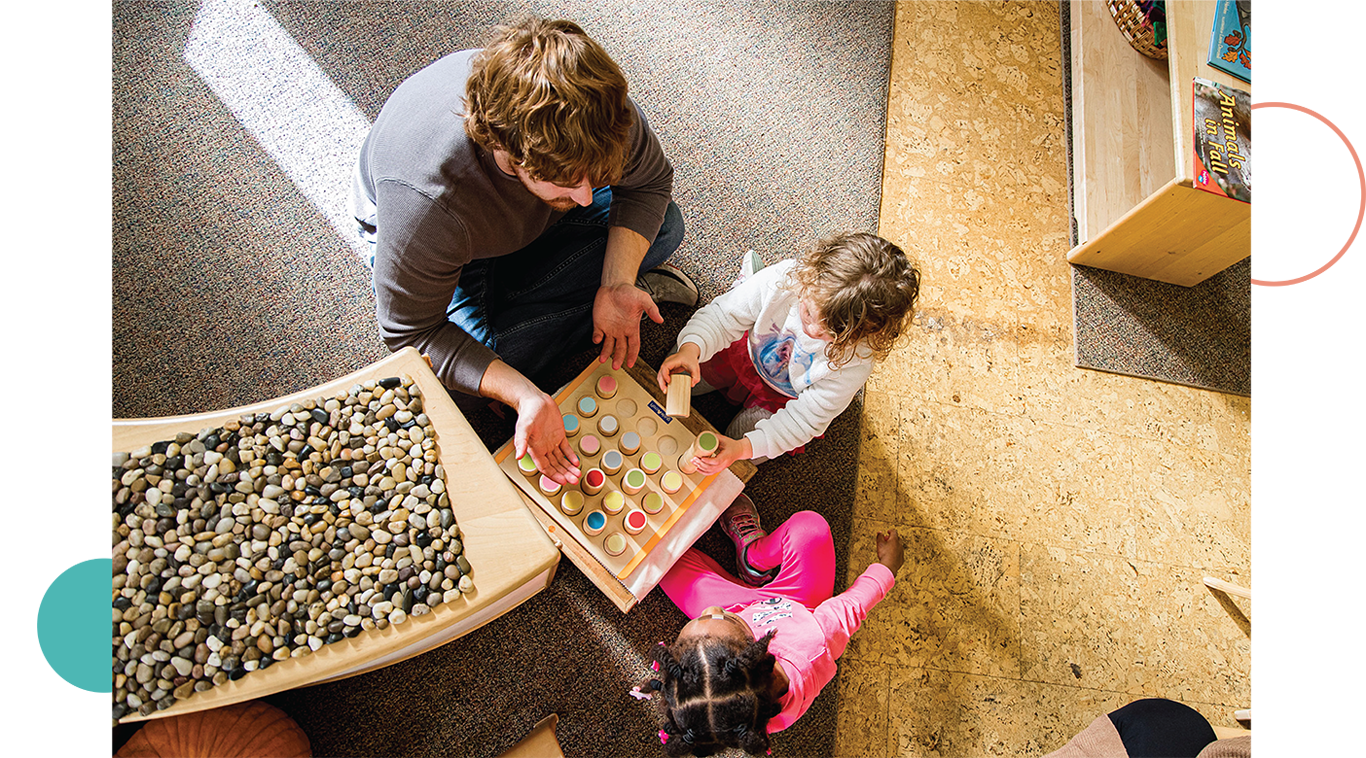Last week, my neighborhood experienced severe storms which caused my family, like many others, to spend time in our designated “safe space”. My husband and I had to wake our children, aged 3 and 5, and take them to the basement. Both were groggy and grumpy but not overly concerned as we hunkered on the couch and read books. Eventually, we all returned to our beds and the night resumed its restful tone.
The next morning as soon as they finished breakfast my children dispersed from the kitchen and began to play. As I cleared their morning dishes I listened as they were quickly (and peacefully!) engaged. Each took a turn pretending to be asleep on the couch while the other would wake them up and take them across the room to the designated “basement” and cover them with a blanket. My 3 year old (who especially likes sound effects) created loud BOOMING noises and my 5 year old asked him, “Is that thunder!?” He would reply, “yeah it is, it’s really big. But you’re safe.” This game went on many times and in different directions but with the same basic theme…there was a storm, they were scared, they knew what to do. They practiced and processed over and over their feelings, their worries, and different roles in a new situation.
As an early childhood educator I’ve always been passionate about and recognized the power and importance of play. Not only do young children learn best through interest-driven, play based, hands on experiences but they have the opportunity to develop social skills and process feelings. As a parent over the last few weeks, these beliefs have never been more validated. During this time I’ve observed my children not only play “thunderstorm” but have also documented a house my daughter built of legos that included a “downstairs, where the dad is on a work call, you have to be really quiet there.” And have even watched them load up play food onto our couch pretending “ClickList” as they take turns driving to get groceries saying things to each other such as, “but we’re NOT going inside Henry, there are still extra germs.” Each of these observations reminds me play is truly the work of childhood. As children play they have a unique opportunity to “practice” and make sense of experiences and events that feel important to them, are new (and therefore can feel confusing or worrisome) or even stressful. The unique and different nature of our “new normal” over the past month has created many of these opportunities for children to work through. As adults, whether a parent at home or a teacher soon to be reunited with students, what can we do to support this important work for children?
Value and validate play. It can feel necessary to add “educational” aspects to what children are doing such as counting the food they’re serving you or labeling the shapes of blocks they are building with (and these moments are important too!) but recognizing that sometimes just allowing them to lead and create scenarios that are all their own is just as important. Don’t dismiss their pretend experiences as “just playing” and remind yourself they are processing and practicing important emotions, coping and social skills.
Listen! It’s not always an option or our role to participate in their play but listening and taking note of what they are pretending is helpful. Sometimes you might realize they need more clarification about something they’ve heard or seen or that they feel more worried or concerned than you realized about an experience. Gather this information as you observe them play and address it through conversation later by asking them simple questions such as “Tell me more about your thunderstorm game…” or “I wonder why you said you were wearing a ‘scary mask’ at the grocery store?”
If possible, provide open-ended materials that allow for a variety of play opportunities. Simple items such as legos, blocks, stuffed animals, small dolls/characters or pretend food/kitchen tools allow children to engage in play led by their own ideas and needs.







